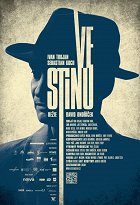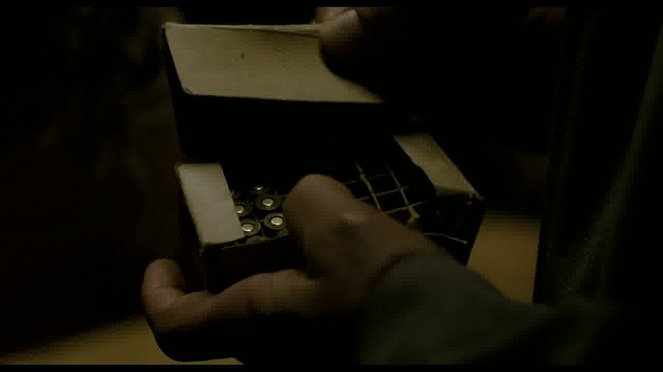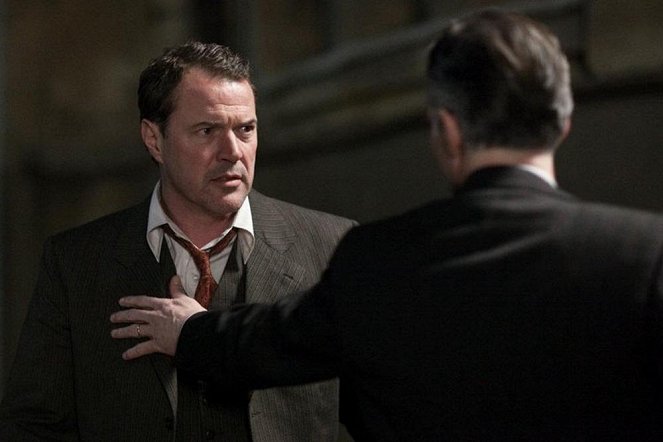Rendező:
David OndříčekOperatőr:
Adam SikoraSzereplők:
Ivan Trojan, Sebastian Koch, Soňa Norisová, Jiří Štěpnička, Marek Taclík, Filip Antonio, Norbert Lichý, David Švehlík, Martin Myšička, Miroslav Krobot (több)Tartalmak(1)
The movie pictures a friendship and bravery at the times when courage was a ticket to the execution ground. Framed by a criminal story, the movie takes us to the spring of 1953, shortly after the death of the communist boss Klement Gottwald. He is replaced by Antonin Zapotocky who follows the tough course of repression and strengthening the communist regime. We see Captain Hakl pass through the dusky streets in his gray overcoat. A tenacious and somewhat choleric detective full of emotion and intuition, with whiskers and a hidden pain. Hakl has been with the police for 25 years having gone through service during the First Republic, Nazi occupation and now working for the communist National security. His apoliticalness and craving for partial truth bring him across more and more new facts implying that the seemingly simple case with an only suspect starts to twist. All the circumstantial evidence are heading to the Jewish community. He is followed by Major Zenke like a shadow, who is invited from East Germany as a specialist on Jewish crime. The story deals with a fabricated mugging orchestrated by the communist secret service in order to divert attention from the impending national disaster – monetary reform. This crime committed on a nation, having gotten out of control of the initiators, is one of the greatest robberies in Europe's modern history. (forgalmazó hivatalos szövege)
(több)Videók (2)
Recenziók (9)
In the Shadow has become the subject of many articles and the focus of film critics and journalists, who mostly welcomed it positively and praised it as a step back into the spotlight for Czech cinema. The same was true for Czech films like Protector or Walking Too Fast, and in all cases, I had to conclude that my view is significantly more critical and that, despite certain positives, from a global perspective, they are average films. Of those three titles, Ondříček's film seems to me to be the weakest. However, to not just criticize, I can start with the positives first. Firstly, the cast. Ivan Trojan is probably the greatest acting discovery of the post-November era and handles his detective role brilliantly. The supporting actors are also very good. Secondly, the film's budget and technical quality. It has been a long time since I have seen proper film cinematography and not a cheap TV production. The cameraman plays with light and shadows, and especially in the first fifteen minutes, it is truly a spectacle. This is also related to the attempt, albeit inconsistent, to create the retro atmosphere of the 1950s. Of course, there are also mistakes - the crew puts oil lamps in every room because it looks beautifully stylish, but as someone involved in the field, I would like to point out that Prague was already electrified during the reign of the Emperor, and oil lamps were only used in peripheral rural areas in the 1950s (full electrification was completed in 1960). However, this is obviously a detail that is not significant for most viewers. But it is worse with the screenplay, which caused me to only give it two stars. It would have been a fine film if it had been written by an American screenwriter and directed by an American director. However, this was created by Czechs, who should be steadfast in terms of our history. Moreover, it is not a light genre film, but an ambitious piece that wants to confront the past. The whole construction of the anti-Semitic conspiracy is simply too fragile and poorly conceived. The film begins as a neo-noir but quickly transitions into a psychological drama and, above all, a political thriller. This genre combination simply does not work well because, in my opinion, the film ultimately fails in all these genres. It doesn't work as a detective story at all because, to put it bluntly, the final revelation of the killer is incredibly ridiculous. As a political thriller, it is superficial and if it says anything, it's only the long-known truths. Interestingly, the most powerful films about communist crimes were made even during the functioning of real socialism. I am criticizing In the Shadow for significant logical errors that spoiled my enjoyment of the film, but unfortunately, I can't discuss them without revealing that the gardener is the murderer. Just as an example - I can't make sense of the character portrayed by Sebastian Koch in any way. What did the screenwriter mean by that? Overall impression: 45%.
()
I gave it four stars at first because I’m happy about every Czech film that isn’t bad, and In the Shadow is not a bad film. The problem is that it’s not the good detective film that it wants to be most of the time. It works mostly on a dramatic level, but the unnecessarily complicated, confusing and vaguely narrated level of the detective investigation bothered me in the cinema. I didn’t get exactly the who, what, how and why… Technically speaking, it’s comparable to the European competition, which is good. What Czech cinema is missing the most today are good screenwriters.
()
I decided to go to the cinema to see In the Shadow because I believe such efforts at good filmmaking simply deserve my money. It surprised me that David Ondříček was able to make such a great film. The actors were amazing. I have to praise Sebastian Koch, who had the desire to star in a Czech film. He definitely succeeded. Still, I must not forget Ivan Trojan in the leading role, who was absolutely amazing. But the others were good as well. And even though they only appeared in the film for a few scenes, it was a pleasure to see them, whether it was Martin Myšička, Miroslav Krobot, Simona Babčáková or Jiří Štěpnička. As for the story, I admit that I was expecting a complicated riddle with an interesting ending. But the essence is far simpler than you would expect. Nevertheless, for the great atmosphere of the fifties, the landscape and the set designs, which I still don’t understand where the filmmakers found them, and especially how they managed to adapt them so well, but also for the great production... this film simply deserves the attention.
()
In the Shadow is a successful dark thriller about an anti-Jewish conspiracy within the communist Czechoslovakia in the alarmed year of 1953. I was pleasantly surprised by how Ondříček civilized the realities - the 1950s are not only an absurdly dark time, but they also have a piece of "Hrabal" proletarianism and building crudeness in them (a great recitation of the poem “Kulak"). There is no point in pretending that this is a decent detective story - after a while it is quite clear that rather than a "whodunit" it is a heated clash between the stubborn captain of the crime squad and the StB. But this is where the film stumbles: even though Koch and Trojan act great and the film has well-written dialogues and holds the tension, in the end it unmasks the most banal clichés about heroism face to face with the "will from above". This happens at the cost of screenwriting grand circles and unrealistic solutions (in relation to the family, but also in relation to the entire monster trial with the Jewish community), and unfortunately, also the quite vague motivations of the characters (there is a complete level missing that would deal with the fact that both protagonists married "squids" and especially Captain Hakl can't be as angelically pure and principled as he looks in the film) and leads to an awkward heroic gesture at the end. In other words, realism and drama are overshadowed by noble morality about the heroes who revolted - instead of a layered film, we watch a trivial chess game with constructs at its core. It’s really too bad - the description of the environment reveals that there was much more going on. And finally: why does guiding music have to play during 90% of the runtime in every similar film? For God's sake, let the audience think and feel for themselves.
()
A detective storyline lost under a layer of ideological cleansing, and it’s not even saved by the fact that the extras are familiar faces and that Ondříček sells it visually as a sovereign European film. The cool façade is more likely to bear a jolly contemporary comedy than a period reckoning with a dark chapter of national history. A missed opportunity whose superficial glitz was only cemented by the movie award.
()



Hirdetés